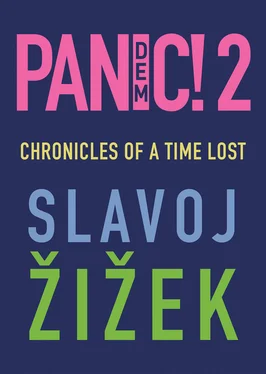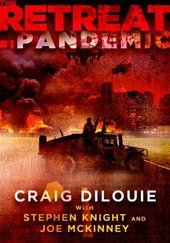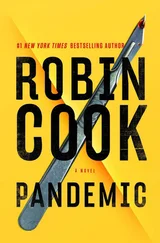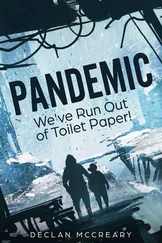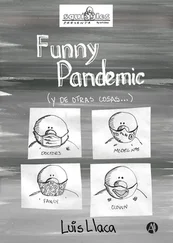As we are now discovering with the Covid-19 pandemic, even when factories are at a standstill, the geo-social class of caretakers has to go on working—and it seems appropriate to dedicate this first of May to them instead of to the traditional industrial working class. They are the truly over-exploited: exploited when they work (since their work is largely invisible), and exploited even when they don’t work, in their very existence.
The eternal dream of the rich is of a territory totally separated from the polluted dwellings of ordinary people—just think about the many post-apocalyptic blockbusters like Neill Blomkamp’s Elysium, set in 2154, where the rich live on a gigantic space station while the rest of the population resides on a ruined Earth that resembles an expanded Latin-American favela. Expecting some kind of catastrophe, the rich are buying villas in New Zealand or renovating Cold War nuclear bunkers in the Rocky Mountains, but the problem with a pandemic is that one cannot isolate from it completely—like an umbilical cord that cannot be severed, a minimal link with polluted reality is unavoidable.
1 1. https://jacobinmag.com/2020/4/david-harvey-coronavirus-pandemic-capital-economy
2 2. https://edition.cnn.com/2020/04/24/asia/singapore-coronavirus-foreign-workers-intl-hnk/
3 3. See https://www.researchgate.net/publication/335392682
4 4. See Nikolai Schultz, “New Climate, New Class Struggles,” in Bruno Latour and Peter Weibel (eds.), Critical Zones: The Science and Politics of Landing on Earth (Cambridge, MA: Cambridge MIT Press, 2020).
3. COVID-19, GLOBAL WARMING, EXPLOITATION—THE SAME STRUGGLE
From today’s standpoint (at the end of June), the initial two months of the Covid-19 panic appear in an almost nostalgic light: true, we were in quarantine, but we expected this to last for a month or two before life would return to some kind of normal—even Dr. Fauci, director of the US National Institute for Allergy and Infectious Diseases, told Americans they could look forward to enjoying their summer vacations. We perceived quarantine as a limited time of exception, an almost welcome standstill in our all-too-busy lives affording us some peace with our families, some time to read books and listen to music, and to enjoy cooking meals, in the knowledge that it will be over soon. Now, we are in what some call the “whack-a-mole stage,” with clusters constantly popping up here and there, not to mention the explosion of new outbreaks in countries like the US, Brazil, and India. Only now are we forced to accept that we are entering a new era in which we will have to learn to live with the virus. The situation is open, there is no clear indication of what direction the pandemic will take—or, as the German virologist Hendrik Streeck succinctly put it: There is “no second or third wave—we are in a permanent wave.” 1
But we are still all too focused on Covid-19 statistics, many of us regularly checking the numbers of infected, dead, and recovered on Worldometer. This fascination with the numbers automatically makes us forget the obvious fact that many more people are dying from cancer, heart attacks, pollution, hunger, armed conflicts, and domestic violence, as though if we get Covid-19 infections fully under control, the main cause of our troubles will disappear. Instead, human life will remain full of miseries and, in some sense, human life IS a misery that ends painfully, often with meaningless suffering.
Furthermore, the link between the Covid-19 pandemic and our ecological predicament is becoming ever more clear. We may get Covid-19 under control, but global warming will demand much more radical measures. Greta Thunberg was right when she recently pointed out that “the climate and ecological crisis cannot be solved within today’s political and economic systems.” 2The same global mobilization that we were able to enact in response to the Covid-19 crisis is even more necessary with regard to global warming and pollution, but we continue failing to act in this direction, or, as Thunberg put it in a wonderful reversal of the title of Andersen’s fairy tale: “The emperors are naked. Every single one. It turns out our whole society is just one big nudist party.”
Take a case of global warming that should convince even the greatest skeptics: the prolonged heatwave in Siberia that, in the first six months of 2020, caused wildfires, a huge oil spill, and a plague of tree-eating moths. As one news outlet reported, “Russian towns in the Arctic circle have recorded extraordinary temperatures, with Nizhnyaya Pesha hitting 30C on 9 June […] Thawing permafrost was at least partly to blame for a spill of diesel fuel in Siberia this month that led Putin to declare a state of emergency. The supports of the storage tank suddenly sank.” 3Just think about all the long-frozen bacteria and viruses waiting to be reactivated with the thawing of permafrost!
The same goes for the link between Covid-19 and the anti-racist protests erupting around the world. The only effective answer to the ongoing debate about the assertion that “Black lives matter” (e.g., why shouldn’t we instead say, “all lives matter”?), is a wonderfully brutal meme now circulating in the US, which depicts Stalin holding a poster that reads: “No lives matter.” (I leave aside here the polemics about Stalinist murders in Australia that gave birth to this version of the meme.) The kernel of truth in this provocation is that there are things that matter more than bare life—is this not also the primary message of those protesting police violence against Black people? Black people (and those who support them) are not demanding mere survival, they are demanding to be treated with dignity, as free and equal citizens, and for this they are ready to risk a lot, including sometimes their lives. That’s why they gather to protest even when it increases the risk of spreading or contracting Covid-19.
Does this mean that Giorgio Agamben was right when he rejected state-imposed lockdowns and self-isolation as measures that imply reducing our lives to mere existence—in the sense that, when we follow the lockdown regulations, we demonstrate that we are ready to renounce what makes our lives worth living for the chance of bare survival? Do we have to risk our lives (by way of exposing ourselves to possible infection) in order to remain fully human? The problem with this stance is that, today, the main proponents of abolishing lockdowns are to be found in the populist new Right: its members see in all similar restrictive measures—from lockdowns to the obligatory wearing of masks—the erosion of our freedom and dignity. To this, we should respond by raising the key question: what does abolishing lockdowns and isolation effectively amount to for ordinary workers? That, in order to survive, they must go out into the unsafe world and risk contamination.
This brings us to the key point: the contradictory way the Covid-19 pandemic has affected the economy. On the one hand, it has forced authorities to do things that at times almost point toward Communism: a form of Universal Basic Income, healthcare for all, etc. However, this unexpected opening for Communism is just one side of the coin. Simultaneously, opposite processes are asserting themselves violently, with corporations amassing wealth and being bailed out by states. The contours of corona-capitalism are gradually emerging, and with them new forms of class struggle—or, to quote Joshua Simon, writer and curator from Philadelphia:
US cities have seen the largest rent strike in decades, at least 150 worker strikes and walkouts (most notably by Amazon warehouse workers), and hunger strikes in refugee detention facilities. At the same time, research shows that US billionaires increased their collective wealth by $282 billion in just twenty-three days during the initial weeks of the coronavirus lockdown. We are forced to recognize the immense inequalities proliferating with the pandemic and lockdown, with people losing their jobs, with gigantic bailouts that overwhelmingly benefit the biggest corporations and the already extremely wealthy, and with the ways those deemed essential workers are forced to keep working. 4
Читать дальше
